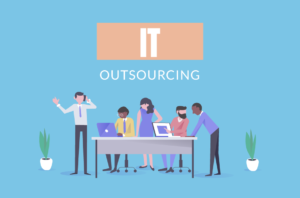How to Select a Software Engineering Vendor

Vendor Selection Meeting +2020 years ago - Image created by MidJourney
Choosing the right software engineering vendor can be a make-or-break decision for your business. With so many options out there, it can be hard to know where to start. But don’t worry, we’ve got you covered with some helpful tips to make the process a bit easier!
💡 Why You Should Read the Article?
In 2020, we conducted a marketing study to understand the decision-making process of engineering leads and product managers in this regard. The study was successful in helping us narrow down our target audience and messaging. However, it also revealed some repeating patterns in the decision-making process of technology and product executives. To delve deeper into their thought process, we conducted extensive research by interviewing over 30 engineering and product executives in North America. This article provides a quick summary of our study, highlighting the key insights and strategies to help you choose the right software consulting vendor for your organization.
Target Audience: Engineering managers, Product executives, Startup founders, Entrepreneurs in Tech
Do you need help selecting the right software development company for your needs? Our team of industry experts, including CEOs and heads of Software Engineering and Product Management, have shared their insider knowledge to assist you in making this crucial decision.
We went the extra mile in our research and conducted virtual interviews with over 30 decision-makers in the industry. Through these conversations, we discovered that trust is the foundation when it comes to outsourcing your software development needs. It’s the one factor that stands out as the most critical in the decision-making process.
While the group of people we studied had different approaches to validating and building trust with potential vendors, they all shared a mutual understanding of the importance of trust. So, no matter what your approach may be, we’ve got you covered with some key factors that can help you build trust and minimize risk with potential vendors.

Expert Insights on Trust in Software Development
We’ve identified three strategies used by our expert group to minimize risk and build trust with new software development vendors.
Assessing Through Client Referrals
Reaching out to previous clients is a valuable way to assess a vendor’s capabilities and reliability. Client referrals can provide an honest and transparent view of the vendor’s work quality, timeliness, and communication skills. It’s important to ensure you can communicate with these clients in person, either virtually or in real life. Don’t rely solely on testimonials you find on the vendor’s website – use the opportunity to have a genuine discussion with their clients.
Although it may seem time-consuming, it’s better to speak with at least two clients to get a well-rounded understanding. When choosing clients to speak with, try to pick ones that are similar to your own situation, whether it’s in terms of industry, project details, size of engagement, or other relevant factors. This will help you get the most accurate and relevant insights from the client’s experience.
P.S.: It’s important to note that due to security restrictions and compliance regulations, vendors may not always be able to disclose all of their previous clients. While this may limit your options, there should still be a handful of clients who are interested in talking and can provide relevant insights. Be sure to ask the vendor about any limitations upfront, and work together to identify the most relevant clients to speak with.
Micro-Engagement: Testing Before Commitment
One approach to minimizing risk is to use micro-engagement. This involves starting with a low-risk project that doesn’t require a significant investment of time or resources. This allows you to evaluate the vendor’s skills, communication, and work quality before committing to a larger project.
It’s important to define the right scope for the initial engagement, which could be a separate topic. Generally speaking, the micro engagement needs to be small enough to test the vendor’s capabilities but broad enough to measure their understanding, planning, and execution abilities. During this step, it’s essential to focus on the process and see how the team approaches the problem and how they solve it.
To ensure success, you should establish clear expectations on the timeline, budget, and deliverables of the micro engagement. At the end of the engagement, it’s fair to evaluate the vendor based on the process and procedures they have in place.
Expertise vs. Expense: Evaluating Prior Works
Evaluating a vendor’s prior work can offer valuable insights into their experience and expertise in your industry or the specific area you require assistance. Typically, a software studio with a narrow focus on a specific sector or technology signals its specialization and expertise in that field. However, this level of specialization often comes at a higher cost. It’s essential to note that while software consulting companies may charge more for niche services, it doesn’t necessarily mean they’re more expert. The vendor’s expertise should be evaluated based on their skills, past performance, and communication capabilities rather than solely on their pricing.
Although having an expert in a specific area can provide a safer option, it may come with a higher price tag. Let’s say you’re creating a digital product in the healthcare industry, and you need to integrate it with a company’s CRM system (Salesforce) using its scripting language, Apex, which is based on Java. You have different options to choose from, but each has its own risks and costs. Here’s a comparison of the rates that shows how expertise in an area can increase service costs while reducing its risks:
Java Developer: $120
Salesforce Developer: $175
Salesforce System Architect: $300
Salesforce Healthcare Architect: $700
Please note that the rates mentioned in the previous comparison are not actual prices but are meant to illustrate how the cost of niche services can be higher.

Evaluating Software Vendors Beyond Trust
Although the top three factors we discussed are essential in building trust, we have also identified a framework that can assist our study group in evaluating software development vendors in non-trust-related aspects.
a) Finding and Retaining Talent: The vendor’s ability to attract and retain top talent is essential for long-term partnership success. Understanding the vendor’s recruitment and retention strategies can help you evaluate their ability to provide consistent quality work. For example, if you’re looking for a vendor to build a custom software solution, you can ask how they recruit and retain top developers with experience in your technology stack.
b) Tools and Techniques for Effective Remote Collaboration: With remote work becoming increasingly common, it’s essential to assess the vendor’s ability to effectively collaborate with remote teams. This includes understanding the tools and techniques they use to ensure effective communication and collaboration between distributed teams. For instance, if you’re outsourcing software development, you can ask the vendor about their preferred project management tools and communication channels.
c) Best Practices for Reducing the Effect of Different Time Zones: If the vendor is located in a different time zone, it’s important to evaluate their best practices for reducing the impact of the time difference on project timelines and communication. For example, if you’re outsourcing software development to a vendor in a different time zone, you can ask about their preferred communication hours and how they handle overlapping work hours.
d) Code Quality Control Processes: Quality control processes are essential for ensuring that the vendor delivers code that meets your requirements and is free from bugs and errors. Evaluating the vendor’s code quality control processes can help you assess their ability to deliver quality work. For instance, you can ask about their code review and testing processes.
e) Receiving and Handling Engineer Performance Feedback: Effective feedback processes can help the vendor improve the quality of their work and address any issues that arise during the project. Understanding how the vendor receives and handles performance feedback can help you evaluate their ability to respond to your needs and concerns. For example, you can ask how they receive feedback, what channels they use, and how they address any issues raised.
SUMMARY
We spoke with industry experts to gather insider knowledge on choosing the right software development company. Trust is the most critical factor in outsourcing software development. We identified three strategies to minimize risk and build trust with potential vendors: client referrals, micro-engagements, and evaluating prior works.
Additionally, we outlined a framework to evaluate software development vendors beyond trust, including finding and retaining talent, tools, and techniques for remote collaboration, best practices for reducing the effect of different time zones, code quality control processes, and receiving and handling engineer performance feedback.
We hope that the insights we’ve shared from industry experts have been helpful in guiding you toward choosing the right software development vendor for your needs. If you have any questions, comments, or additional insights you’d like to share, we’d love to hear from you. Please feel free to leave a comment below or contact us.
Similar to this article:
Visit this Galliot blog post for tips and insights to navigate the product development landscape and build a successful digital product. Discover how to make informed build vs. buy decisions and more.
Do you require building high-quality datasets for your AI application but don’t know where to start? Visit data labeling methodology, approaches, and challenges for a start.
Also, refer to this post to find the top 25 data labeling tools in the market, along with necessary information about each platform for evaluating and choosing the most suitable one for your project.
Leave us a comment
Comments
Get Started
Have a question? Send us a message and we will respond as soon as possible.
Excellent content, it helps in my business Thank you for sharing useful insights. Sincerely, David, author of the blog hackear.app
Thank you for sharing your thoughts on reducing the risk of wrong vendor selection. I agree that there are multiple variables to consider and that we should focus on minimizing these risks by factoring in the items you mentioned. As you mentioned, there isn’t a single solution that will lead to a good vendor selection, and it varies across industries and projects. Nonetheless, I appreciate the framework you have provided in your blog post. It’s a great starting point for anyone looking to reduce the risk of selecting the wrong vendor.